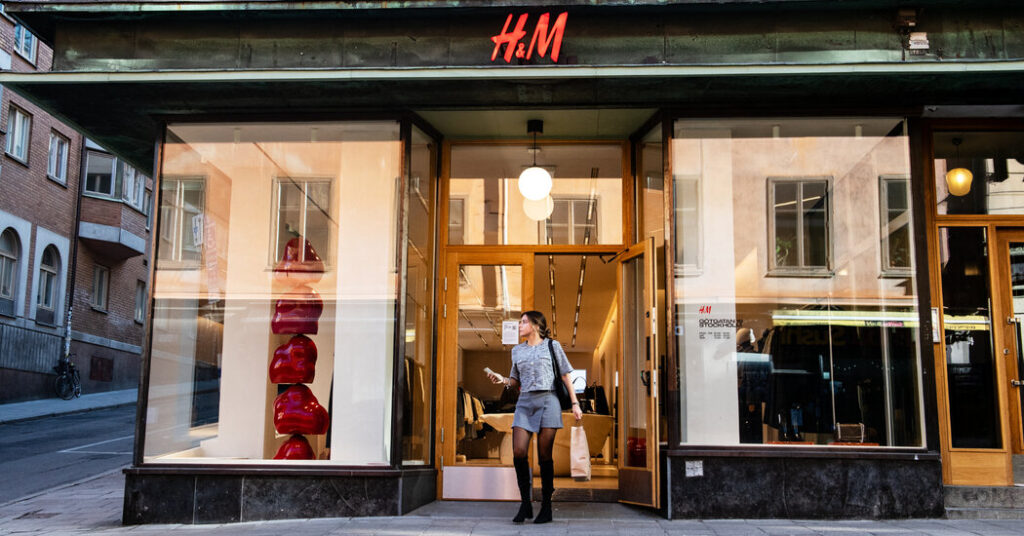Mathilda Gvarliani, a model for H&M, is featured in two photos wearing a white tank top and jeans. One image is of the real Ms. Gvarliani, while the other is a digitally manipulated version of her. The photos were recently published in The Business of Fashion, showing Ms. Gvarliani posing differently in each shot.
In the article, the publication reports that H&M is working with more than two dozen models to create digital replicas for their social media and marketing campaigns, sparking controversy within the fashion industry.
Critics have raised concerns about the use of artificial intelligence-generated images and its impact on models and other industry professionals involved in photo shoots such as hair stylists and makeup artists.
Hacan Andersson, a spokesman for H&M, mentioned that the company is in the exploratory phase of the project, working closely with creatives and models who have control over when their digital replicas are used and compensated accordingly.
Jorgen Andersson, the chief creative officer of H&M, emphasized the company’s “human-centric approach” and commitment to personal style in embracing new technology to showcase their fashion.
The Fashion Workers Act in New York State, effective in June, aims to provide protections to models regarding pay transparency and control over their digital replicas.
The Model Alliance, an advocacy group, expressed concerns about models’ consent and compensation regarding the use of generative A.I. images, particularly in cases where models’ images were used without their knowledge or consent.
The new law in New York State addresses these issues by requiring modeling agencies to obtain written consent from models for the use and remuneration of their digital replicas.
A.I.-generated models can either be fictitious representations or digital replicas, like the H&M “digital twins,” sparking a conversation about the future of fashion industry practices.
Global retailers like H&M have been integrating digital forms into the fashion industry for years to balance brand appeal, transparency, and costs.
Various companies, including Levi Strauss and Mango, have utilized A.I. technology for campaigns involving models and digital representations, raising questions about the future of the industry.
The Model Alliance is evaluating H&M’s plan, highlighting concerns about consent, compensation, and the potential impact of digital replicas on fashion workers.
An H&M spokesman confirmed that the quotes attributed to the models in the campaign are genuine, as the company explores new ways to showcase fashion through technology.

